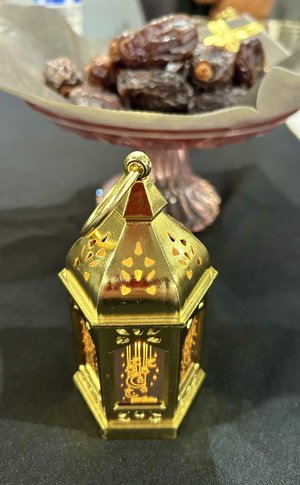Marina Ali is a student, writer, poet, and blue lipstick enthusiast. She is a staff writer for Brown Girl Magazine, features editor for Drunk Magazine, social media manager for TMO Media. When she’s not writing or studying for classes, you can find her picnicking in pastoral East Texas, crafting for her sorority sisters, or making food.
When I was five years old, my parents dropped everything they knew to come to America. They left a comfortable, yet complacent, life in Dhaka for a difficult and fresh start in Oklahoma City. We started out as your standard poor immigrant family. My father came to the States to further his education and career. The first ten or so years in America were constant movement.
My dad got a second master’s and then a Ph.D. while my mother got her master’s. We moved all over the South so my parents could pursue American degrees. Their graduate degrees and extensive, illustrious career backgrounds in Bangladesh didn’t mean anything here. We had to rely on food stamps and other forms of welfare, because we were so poor. Later on, when my father got a job in academia, our prospects improved greatly. Granted we moved from poverty to lower middle class, I was still grateful at our socioeconomic improvement.
Yet during and after my time in poverty, I was deeply ashamed of being poor. For the longest time, I repressed the memory of living in an inner city. I tried to dress nerdy and maintained a standard “uniform,” instead of trying to look fashionable. I felt my tastes in clothing, music, and makeup weren’t up to the refined standards of the people around me in the suburbs. I tried to change how I spoke, teaching myself to change how people perceived me.
Later in high school, I got the opportunity to attend a prestigious parochial private school in my state through generous scholarships and financial aid plans. While I was there, I never hinted that I was a scholarship kid. It felt like a badge of dishonor to let people know about my financial aid status. I marveled at my friends who could openly speak about being scholarship kids. I envied their self-confidence and frankness.
That feeling of shame was alienating. I was desperately trying to maintain my grades to keep my scholarships, while most of my classmates flaunted designer wallets and fancy cars. When my friends of more fortunate backgrounds would ask to go out for after school hang outs at fashionable cafes, I would decline, citing my strict Muslim family. In reality, it was because of my immense guilt for spending my parent’s money instead of studying for classes. It was during my time at private school that I began to understand the positive and negative effects of wealth.
When my private school classmates would ask about my family, I’d point to my exceptional pedigree in Bangladesh. Even though my family languished in poverty during our early years in America, my extended family enjoyed the privileges of inherited wealth and high social status. I’d always avoid talking about my own struggled with money; however, I would indulge in fantastic musings about my aunts, uncles, and grandparents.
Ironically, during my final years of private I finally started accepting my past. At that point, the majority of my life was plagued with money issues. Even when my family started to become well-off in life, we still had tensions over money. I used to think that this was just a problem that my family alone was going through and we were somehow different from “regular” American families. That changed during my junior year in Advanced Placement (AP) English. My class was learning about the “American Experience.” We read a wide array of stories and essays in the class from Thoreau, Tocqueville, DuBois, Plath, Poe, Dickinson, Hughes, Lahiri, and Said just to name a few.
I read stories, poems, and essays about and by immigrants from different periods in American history. They were Irish, Greek, Jewish, Mexican, Cuban, Syrian, Filipino, and Indian. I learned about the lives of people who lived during the Great Depression. I read stories about living in a discriminatory society by African American, Latinx, and Muslim writers. For the first time in my life, I found voices from generations before who echoed mine. I saw parts of myself from people who I’ve never met and likewise will never know about me. I was uplifted by the stories of people who found ways to overcome their situations and their own insecurities from things like being an immigrant, being a minority, or living in poverty.
It was a beautiful experience for me as a teenager. I was privileged to have amazing teachers and a school environment that valued diversity of thought, opinion, and social status. Even though I was a Muslim in a Christian private school, I felt welcome. My faith actually grew during my time at private school!
It took me a while to reclaim my past in poverty. These days, I embrace my past. I talk, dress and act how I want to, and these things don’t determine my worth as a person. My time in poverty made me stronger and wiser. In American society, I think we tangle somebody’s poverty with personal deficiencies. Poverty is seen as a sign of personal failure and lack of discipline. However, sometimes people can’t control the situations they fall into and that doesn’t mean they’re less than those who are well off. I think it’s all about reclaiming the ideas that used to trap you into things that bring you courage and power. I relish in the fact that my poor immigrant past makes me a more colorful person. My past connects with me other people who are or have been in similar situations. It makes me more human.


